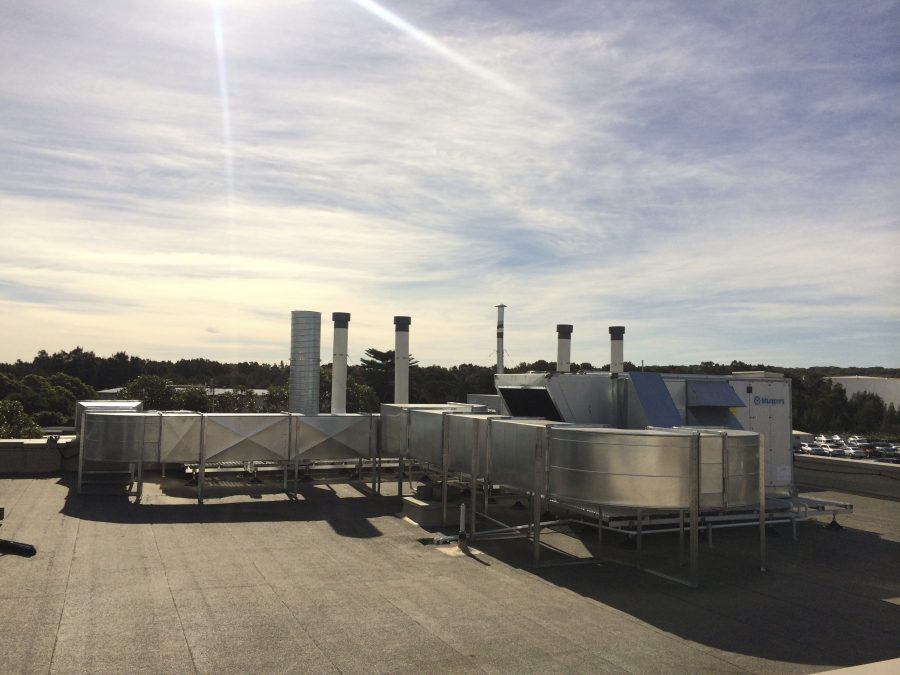Business
Commercial Air Conditioning: How To Make It Efficient

With thousands of things to worry about, the efficiency of the HVAC system easily slips away. As a result, many businesses are haemorrhaging money. This is unacceptable because there are many simple and affordable ways to make a big difference in the energy-efficiency department.
It certainly pays off to take proactive measures. To make it happen, evaluate whether the expenses for a commercial system are higher than they should be. Come up with a plan to cut back on energy bills and improve your financial situation by improving the functioning of your air conditioning.

Like clockwork
It is hard to imagine modern business operations without the constant humming of air conditioning. During hot summer months, the system undertakes quite a heavy duty: It keeps the work environment cool and enables operations to run as usual, without any productivity hurdles and hindrances.
Sometimes though, it is working extra hours or harder than necessary. There are various tweaks and improvements that can optimize your system. You can save time and money by making your air conditioning cool faster on less energy input.
And make no mistake, these are considerable gains: On average, an HVAC system accounts for 25 – 50% of total commercial building energy costs. What is more, it takes the blame for the lion’s share of building’s greenhouse emissions, around 63%.

Regular maintenance
So, first off, assess your needs and don’t overdo it: An oversized air condoning setup is bound to be inefficient and energy-sapping.
Carry out a site survey, which companies that sell and maintain HVAC systems often provide for free. While at it, have a talk with HVAC specialists and hear what they have to say about optimizing your system.
Bear in mind that the regular maintenance is always the key to smooth functioning. Related tasks are best handled by trained and trusted professionals, like experts working at this air conditioning service from Leichhardt, so make sure to schedule regular check-ups.
In any event, keep up to date with inspections, repairs, and tune-ups. Without these staples of maintenance, your system could lose 5% of its efficiency every year.

Habitual excellence
Daily habits of everyone on the premises play an important role. Leaving a door and windows of the room open, for instance, is a major way to waste energy and impede HVAC’s efficiency. There is no point in boiling the ocean is there?
Well, you should make an effort to educate everyone on the consequences of leaving the main leakage points of the building’s envelope open.
One of the most important things to keep an eye on is that the units are switched off when there is nobody around. Leaving a system to work overnight wastes a great amount of money and energy. To prevent this from happening, either turn the machines manually or utilize timers that can be installed on modern systems.
Furthermore, it is essential to figure out the suitable temperature level and stick to it. The optimal temperature is a matter of debate and depends on the season and level of activity, but it should neither be too warm not too cold inside.
Rooms that are used infrequently or only for storage can be heated less, which could save you up to 30% in energy bills. Install a thermostat control system to make temperature management much easier.
Another thing you can do is reduce a demand on air conditioning and let fans cool the rooms as well. As an added benefit, they improve air circulation and make the rooms feel more pleasant to work in.

The next level efficiency
Air conditioning is one of the areas where businesses tend to spend more money than needed. The costs quickly add up and bite off a big chunk of the budget.
So, it is high time to realize that a properly optimised HVAC system does not only maintain appropriate indoor temperature, but also leads to significant money and energy savings.
Thus, you need to rely on practical and actionable tips to make strides towards better energy efficiency. You have an opportunity to take the performance of air conditioning to the next level and elevate the productivity of your operations in the process.
-

 Tech11 years ago
Tech11 years agoCreating An e-Commerce Website
-

 Tech11 years ago
Tech11 years agoDesign Template Guidelines For Mobile Apps
-

 Business6 years ago
Business6 years agoWhat Is AdsSupply? A Comprehensive Review
-

 Business10 years ago
Business10 years agoThe Key Types Of Brochure Printing Services
-

 Tech8 years ago
Tech8 years agoWhen To Send Your Bulk Messages?
-

 Tech5 years ago
Tech5 years ago5 Link Building Strategies You Can Apply For Local SEO
-

 Law5 years ago
Law5 years agoHow Can A Divorce Lawyer Help You Get Through Divorce?
-

 Home Improvement6 years ago
Home Improvement6 years agoHоw tо Kеер Antѕ Out оf Yоur Kitсhеn







































